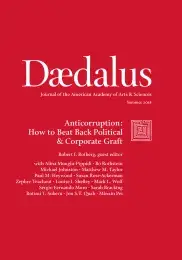How Not to Fight Corruption: Lessons from China
The most effective anticorruption strategies combine prevention and enforcement. Yet the political payoffs are greater for enforcement-centered strategies, even though they often fail to achieve durable objectives. Autocratic regimes with endemic corruption thus tend to prefer enforcement-centered anticorruption strategies: they are easier to contain, while prevention-centered strategies risk undermining the rulers’ bases of power. This explains why the ruling Chinese Communist Party (CCP) has consistently favored an enforcement-centered anticorruption strategy. However, an overemphasis on enforcement, in the Chinese political context at least, has resulted in the politicization of anticorruption efforts and a lack of sustainability of such efforts.
Judging by the numbers, the anticorruption campaign launched in late 2012 by Xi Jinping, the general secretary of the Chinese Communist Party (CCP), cannot fail to impress. By July 2017, the drive had put behind bars nearly 140 Party officials–with rankings of vice minister, deputy provincial governor, and higher –and more than fifty generals in the People’s Liberation Army and the People’s Armed Police. In the same period, tens of thousands of midlevel officials were also investigated, sanctioned, and prosecuted for various types of wrongdoing. In 2016 alone, the Party punished about twenty-one thousand midlevel officials.1 While Xi’s anticorruption crackdown, the most ferocious and sustained in the history of the People’s Republic of China (PRC), may have temporarily curbed shady dealings involving government officials, its long-term effectiveness in reducing corruption remains doubtful. One telltale sign is that the strategy was primarily successful in exposing those officials who perpetrated illicit activities during the campaign, raising questions about the effectiveness of anticorruption efforts once the campaign dies down. The oth- . . .
